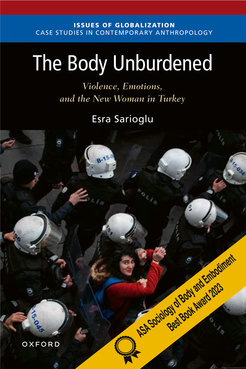The New Woman and Moral Politics: A Herstory of Women’s Feelings and Agency in Turkey
Esra Sarioğlu
The New Woman and Moral Politics: A Herstory of Women’s Feelings and Agency in Turkey analyzes the emotional trajectory of the gendered transition from neoliberal globalization to right-wing populist authoritarianism in Turkey—that is, from the 1990s to the late 2010s. The project investigates the gendered operations of emotions and the ways in which gender politics is transforming during the global era. More specifically, it examines how emotions of shame, embarrassment, and honor energize the capitalist economy, feminist movements, and authoritarian politics in complex, contradictory, and unexpected ways in contemporary Turkey. The project advances ongoing discussions regarding feminist theory, women's agency and embodiment, emotions, globalization and gender, gender politics, and right-wing populism, as well as ethnography of the working classes, and Middle Eastern studies.

The book entitled The Body Unburdened: Violence, Emotions, and the New Woman in Turkey (Oxford University Press, 2022) was published as part of the project. It examines political and historical processes from the feminist perspective, revealing an ensemble of emotional and embodied dynamics that shape the new urban economy, women’s activism and sociality within cities, and the authoritarian politics of today. This book opens up a novel path for thinking about the gendered links between neoliberalism and right-wing populism in the global era by combining ethnography of a new group of women from the popular classes with a study of vigilante violence against these women. It uses emotions, particularly shame and honor, as an optic of sociological analysis, offering fresh conceptualizations of women’s agency and authoritarian politics. To explain why and how emotions have taken on enormous political and economic significance during the global era, the book brings perspectives from the sociology of the body and the history of emotions as well as affect studies, feminist phenomenology, symbolic interactionism, Bourdieusian sociology, and globalization, gender, and labor scholarship. The line of analysis that I develop explores the uneven and unanticipated interactions between trade openness and bodily openness, by which human beings are simultaneously open to people and places, and to violence and hostility. This highlights the political–ontological bind that young urban working women from the popular classes face in today’s Turkey.
Key References
